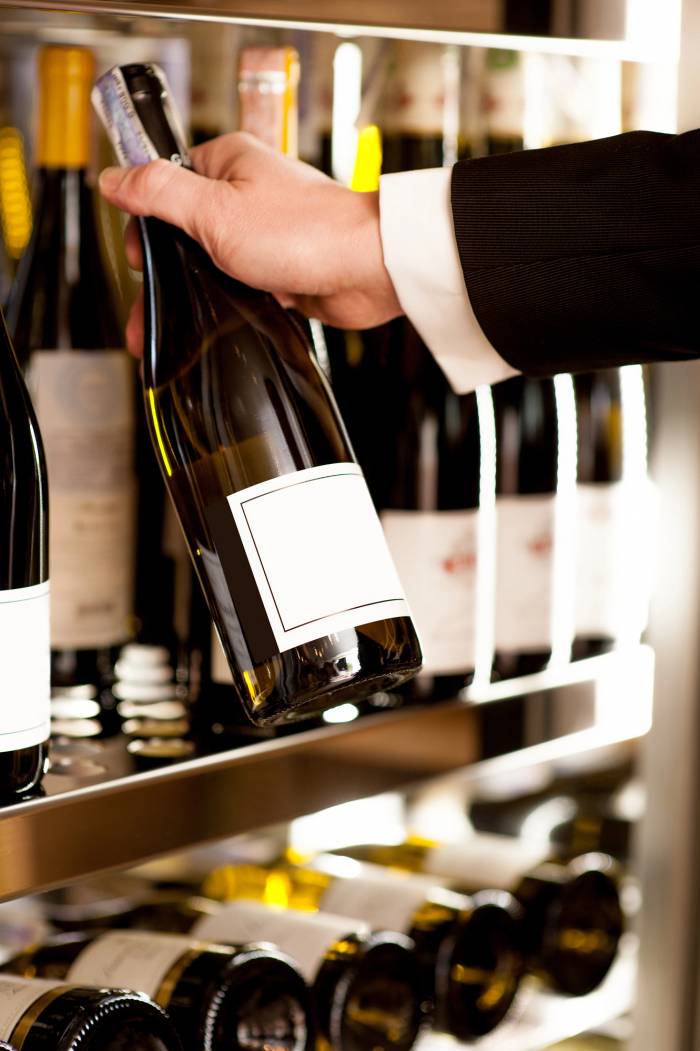15% Tariff on Italian Wine Threatens $1.7 Billion in U.S. Revenue and 317 Million Euros for Italy
2025-11-18
Majority of Italian wine exports to the U.S. now face steep price hikes as trade deal leaves sector unprotected from tariffs

The United States has confirmed a 15% tariff on imported Italian wine, a move that is expected to cost Italian producers an estimated 317 million euros over the next year. The figure was released by the Unione Italiana Vini (UIV), Italy’s main wine industry association, following the announcement of the new tariff regime for European exports to the U.S. The decision comes after a recent agreement between American and European leaders, including Ursula von der Leyen and Donald Trump, reached in late July.
According to UIV, the impact of these tariffs will not only affect Italian wine producers but also their American partners, such as importers, distributors, and restaurants. The association estimates that lost revenue for U.S. partners could reach nearly $1.7 billion. If the current weakness of the dollar continues, UIV warns that losses for Italian producers could rise to 460 million euros within a year.
Lamberto Frescobaldi, president of UIV, described the outlook for the second half of the year as “very difficult,” though he expressed hope that negotiations might still lead to changes. He called for a united front among Italian wine producers and their American partners to oppose the tariffs in order to protect both countries’ businesses. Paolo Castelletti, UIV’s secretary general, also urged the Italian government to support promotional efforts for Italian wines in the U.S., noting that export volumes have already dropped by nearly 4% in the first five months of this year.
The tariffs put particular pressure on some of Italy’s most popular wines in the U.S. market. According to UIV data, 76% of all Italian wine bottles shipped to the United States last year—about 366 million out of 482 million—are now considered highly exposed to these tariffs. Wines with especially high export rates to the U.S. include Moscato d’Asti (60%), Pinot Grigio (48%), Chianti Classico (46%), Tuscan red wines with protected designation of origin (35%), Piedmont red wines with protected designation (31%), Brunello di Montalcino (31%), and Prosecco (27%).
The joint U.S.-EU statement issued on August 21 confirmed that most EU exports—including strategic sectors like automobiles, pharmaceuticals, semiconductors, and timber—will now face a maximum tariff rate of 15%. European Commission President Ursula von der Leyen said this agreement brings predictability and stability to transatlantic trade relations and secures jobs and economic growth in Europe. In exchange for this deal, the EU has committed to purchasing $750 billion worth of American liquefied natural gas, oil, and nuclear products by 2028.
However, not all sectors received relief from tariffs. Maroš Šefčovič, European Commissioner for Trade, acknowledged that efforts to exempt wine, spirits, and beer from tariffs were unsuccessful. He said both sides remain open to future negotiations on these products as well as steel and aluminum.
Giacomo Ponti, president of Federvini—another major Italian beverage association—called it a missed opportunity for full recognition of wine and spirits as strategic sectors in transatlantic relations. For now, he noted, these products remain excluded from any exemptions despite their global reputation.
The effect on retail prices in the United States is already being felt. According to UIV analysis from July, an Italian bottle that left the winery at five euros used to retail for about $11.50 in American stores; with the new tariff and currency fluctuations, that price is now close to $15. In restaurants, where markups are higher, a five-euro bottle could cost diners around $60.
Italy is particularly vulnerable compared to other European exporters because it sends a larger share of its wine production—24% by value—to the U.S., compared with France’s 20% and Spain’s 11%. Most Italian wine exports are also concentrated in lower price ranges where consumers are more sensitive to price increases.
The new tariffs do not only affect wine but also other key Italian food exports such as olive oil (140 million euros), pasta (74 million euros), pork products, and dairy goods. The total loss for Italy’s agri-food sector could reach one billion euros in annual business with the United States.
Italian agricultural groups Coldiretti and Filiera Italia expressed disappointment that wine was not excluded from the tariff list. They also raised concerns about food safety standards if more American products enter Europe under less stringent regulations.
As trade tensions continue between Washington and Brussels, both sides have signaled willingness to revisit some sectors in future talks. For now, however, Italian wine producers face a challenging period as they try to maintain their position in one of their most important export markets under new financial pressures.
Founded in 2007, Vinetur® is a registered trademark of VGSC S.L. with a long history in the wine industry.
VGSC, S.L. with VAT number B70255591 is a spanish company legally registered in the Commercial Register of the city of Santiago de Compostela, with registration number: Bulletin 181, Reference 356049 in Volume 13, Page 107, Section 6, Sheet 45028, Entry 2.
Email: contact@vinetur.com
Headquarters and offices located in Vilagarcia de Arousa, Spain.